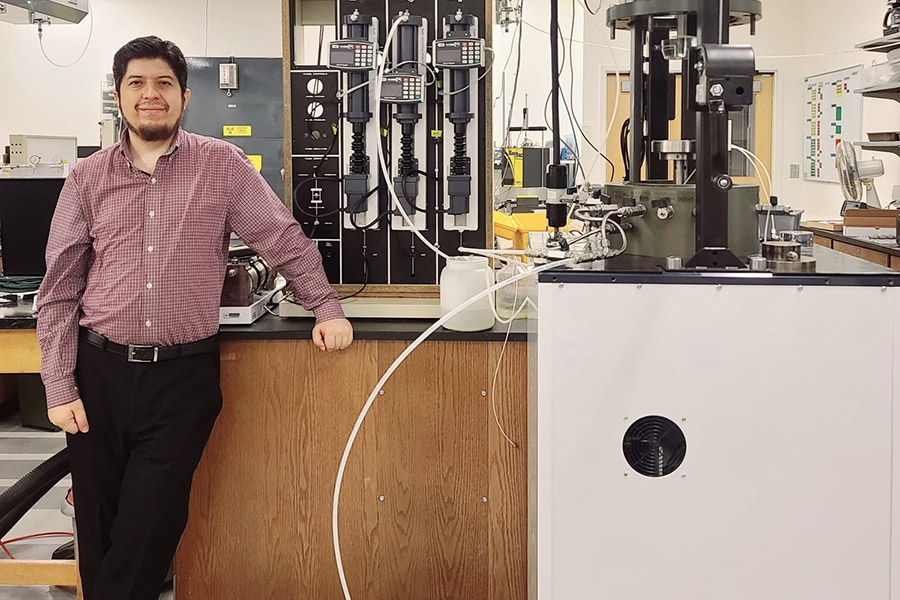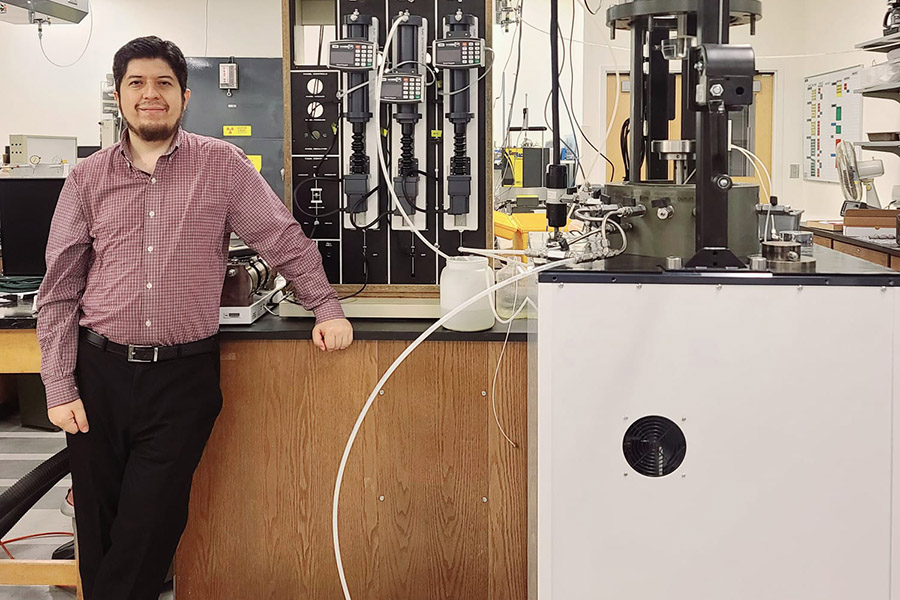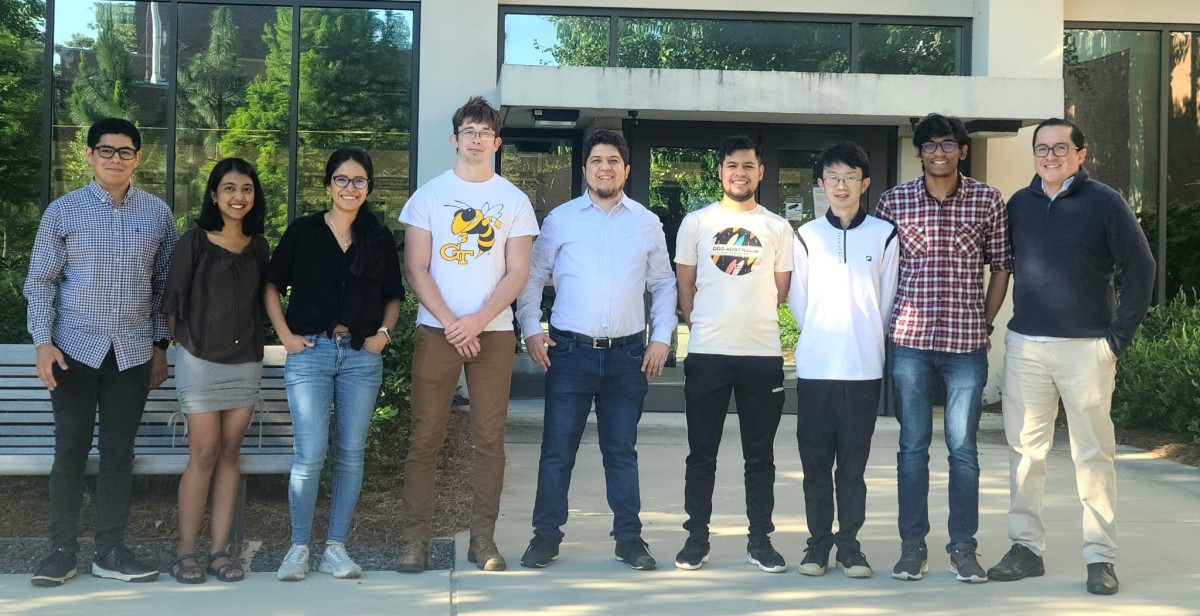
 |
| Jorge Macedo |
By Melissa Fralick
Assistant Professor Jorge Macedo has won a 2022 Faculty Early Career Development (CAREER) Award from the National Science Foundation.
The CAREER Award is the National Science Foundation's most prestigious award for early-career faculty, recognizing those with potential to lead advances in their fields and serve as role models in research and education.
Over the course of five years, Macedo will receive more than $581,000 for his proposal, “Towards the Next Generation of Data-Driven and Performance-Based Multiscale Procedures in Mining Geotechnics.”
“Getting the CAREER award is a great honor and motivates me to keep improving as a researcher, educator, mentor, and engineer,” Macedo said. “The CAREER award will provide significant momentum to my current research efforts and enable paths for very exciting collaborations.”
Macedo hopes to utilize data science as a tool to reshape the field of mining geotechnics, with a focus on improving the safety of high-risk infrastructure like tailings storage facilities. Tailings are the soil-sized geomaterial waste created in mining operations when valuable minerals are separated from an ore deposit. Tailings are typically mixed with water to form a slurry that facilitates transport by pipeline to a tailings storage facility.
Over the past decade, tailings storage facility failures around the world have caused catastrophic environmental consequences and human losses. A similar failure in the United States could cause dramatic damage to the economy, environment, and nearby communities. Therefore, designing more resilient tailings storage facilities and better assessing the condition of existing ones is vital for regions where mining is active, such as Arizona, Nevada, Colorado, and Utah.
With his CAREER project, Macedo aims to apply new technologies—data-driven and performance-based procedures using machine and active learning—to provide novel insights that could improve the resilience of tailings storage facilities and set new standards for mining infrastructure in general.
Macedo hopes this project will be the foundation for an interdisciplinary field at the convergence of data science, mining geotechnics, and performance-based engineering—demonstrating the power of data-driven approaches to the geotechnical and hazard communities.
As part of the CAREER Award, Macedo will integrate research, educational, and outreach components over the course of the five-year project.
His education plan will engage undergraduate, graduate, and K-12 students in Georgia Tech vertically integrated projects, which include undergraduate and graduate students in ambitious, long-term, multidisciplinary project teams led by faculty. Specifically, the students engaged with Macedo’s group will be working on problems at the convergence of geotechnics and data science. Macedo also plans to collaborate with STEM centers at Georgia Tech and other institutions in the United States that promote the resilience of mining infrastructure. In particular, Macedo plans to engage the TAilings and IndustriaL waste ENGineering Center (TAILENG) that he founded and chairs to implement efforts that contribute to creating the next generation of tailings engineers with literacy in data science.
In addition, Macedo’s outreach plan will establish a peer mentoring program for Hispanic and Latinx students in collaboration with the Georgia Tech GoSTEM, Latino Organization of Graduate Students (LOGRAS), and Mentor & Mentee (M&M) programs. The pilot program will pair first-year students with juniors, sophomores and seniors, and seniors with graduate students.
 |
| Macedo's research group, from left to right: Renzo Cornejo, Amrita Mohanty, Lina Pua, Cody Arnold, Jorge Macedo, Luis Vergaray, Chenying Liu, Vivek Srinivas, Jose Torres. |
Related:
